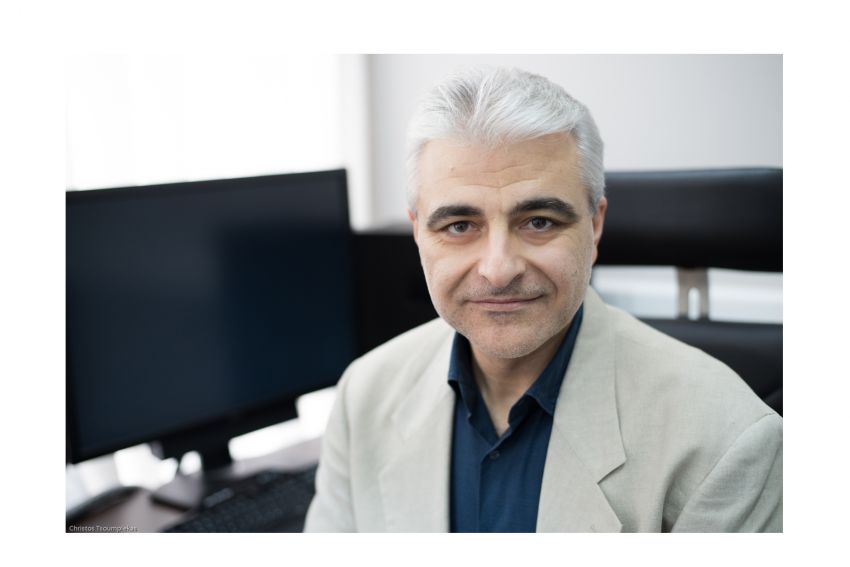All Science News

Professor Nektarios Tavernarakis re-elected President of the Foundation for Research and Technology – Hellas
Nektarios Tavernarakis, Chairman of the Board of Directors of the Foundation for Research and Technology – Hellas (FORTH) and Professor at the Medical School of the University of Crete, was unanimously re-elected Chairman of the Board and Director of the Central Administration of FORTH, by a 7-member Evaluation Committee of distinguished scientists, headed by Dr. George Pavlakis (Head of Human Retrovirus Section, National Cancer Institute – NCI).
This re-election stands in recognition of the significant developmental initiatives and the fruitful work accomplished, during the short period of his first term as Chairman. Moreover, it is the reward for his continuous contribution to scientific research, which has been internationally recognized through numerous awards and distinctions, such as his recent election as Vice President of the European Research Council and as Fellow of the American Association for the Advancement of Science.
Short Biography
Nektarios Tavernarakis is the Chairman of the Board of Directors at the Foundation for Research and Technology-Hellas (FORTH), Research Director at the Institute of Molecular Biology and Biotechnology (IMBB), and Professor of Molecular Systems Biology at the Medical School of the University of Crete, in Heraklion, Greece. He is the Director of the Graduate Program on BioInformatics at the Medical School of the University of Crete, and is also heading the Neurogenetics and Ageing laboratory of IMBB. He earned his Ph.D. degree at the University of Crete, and trained as a postdoctoral researcher at Rutgers University in New Jersey, USA.
He is an elected corresponding member of the Academy of Athens, an elected member and Vice President of the Scientific Council of the European Research Council (ERC), and an elected member of the European Institute of Innovation and Technology (EIT) Governing Board and Executive Committee, the American Association for the Advancement of Science (AAAS), the European Molecular Biology Organization (EMBO), the German National Academy of Sciences (Leopoldina), theEuropean Academy of Sciences and Arts, and Academia Europaea. He has also served as the Director of the Institute of Molecular Biology and Biotechnology.
His research focuses on the molecular mechanisms of necrotic cell death and neurodegeneration, the interplay between cellular metabolism and ageing, the mechanisms of sensory transduction and integration by the nervous system, and the development of novel genetic tools for biomedical research.
He has received several notable scientific prizes, including two ERC Advanced Investigator Grants, and an innovation-supporting ERC Proof of Concept Grant. He is also the recipient of the EMBO Young Investigator award, the Alexander von Humboldt Foundation, Friedrich Wilhelm Bessel research award, the Bodossaki Foundation Scientific Prize for Medicine and Biology, the Empeirikeion Foundation Academic Excellence Prize, the BioMedical Research Award of the Academy of Athens, the Galien Scientific Research Award, and the Helmholtz International Fellow Award, among others.
For additional information, please visit: http://www.elegans.gr/







